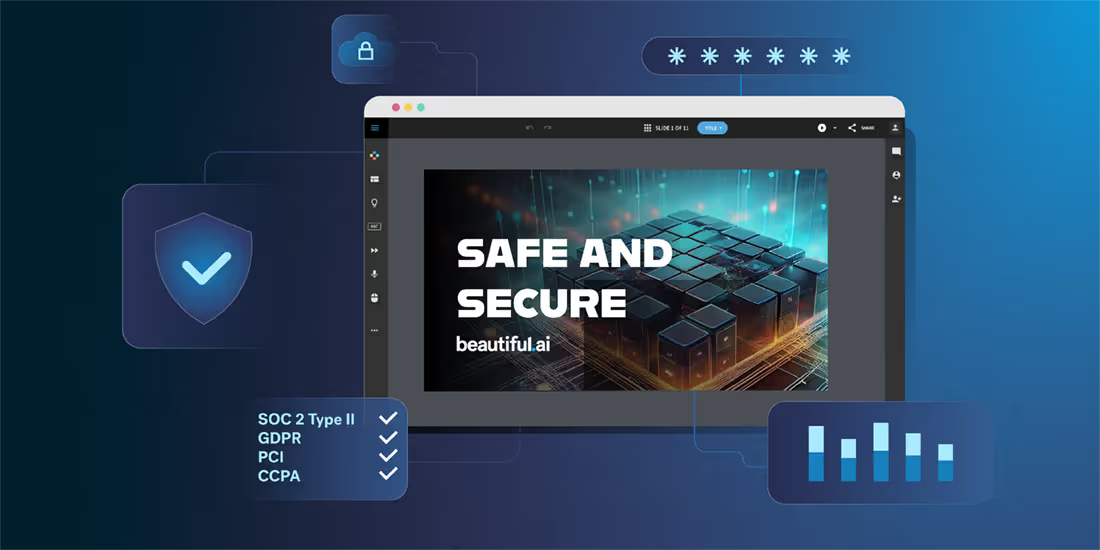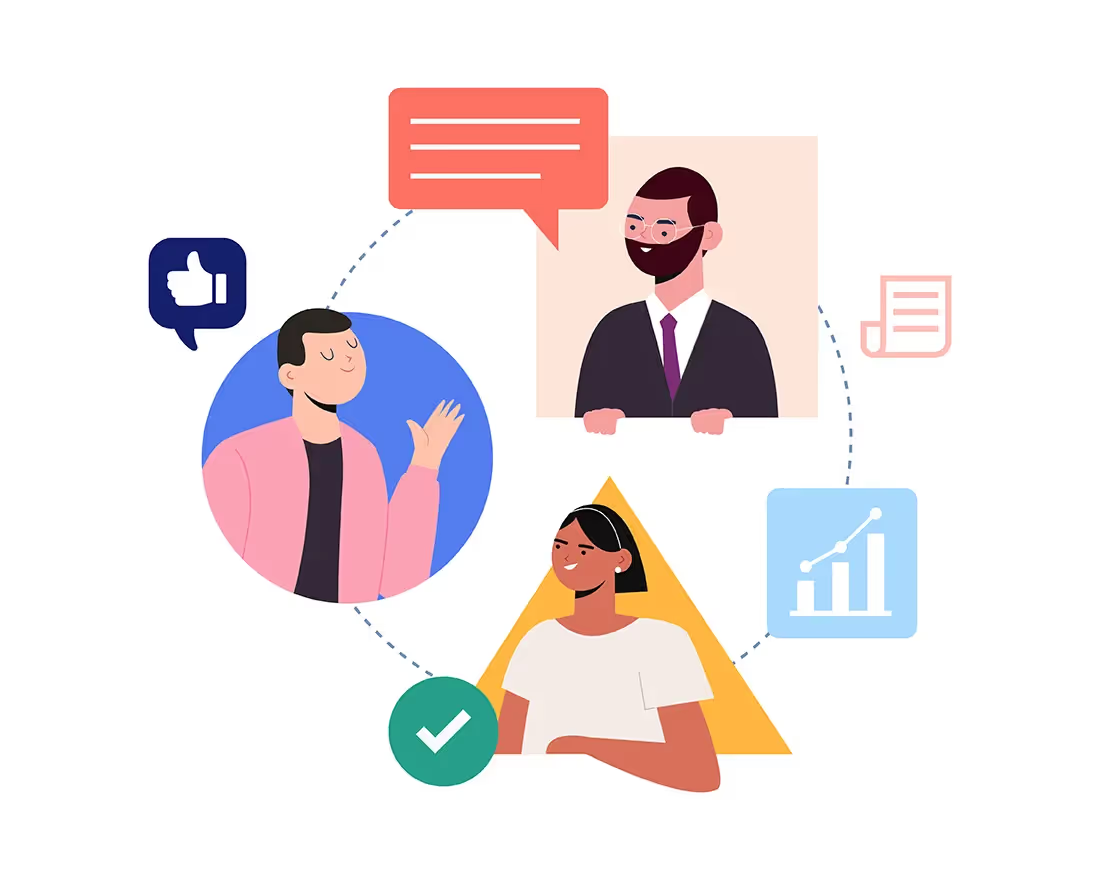
Artificial intelligence has proven to help teams’ increase productivity, but does it come with red flags? Like any new technology, there are question marks that surround AI— including cybersecurity risks.
Security & AI
As teams continue to adopt new AI softwares, it’s natural to be curious about the ramifications of AI in their business. Out of all of the potential effects of AI in the workplace— such as cost and employee resistance— cybersecurity is the biggest concern among managers. In a 2023 survey, 75% of managers admitted that they are worried about the security of AI tools and potential privacy issues at work.
As more and more companies explore AI tooling, they are struggling to determine the right balance between productivity and risk. The good news is that many vendors (Beautiful.ai included) are responding to the heightened state of AI security by updating terms of services, privacy policies, data processing agreements, and enforcing strict controls around generative AI integrations, to better address customer concerns around data privacy and security.
5 Things to look for before onboarding new AI software
How should organizational leaders approach AI adoption? When assessing an AI company's security posture, there are many things to consider beyond just security audits and privacy policies.
Here are 5 things to look for before onboarding new AI software:
1. Check Crunchbase & other resources
Decision makers can use resources like Crunchbase, Reddit, and LinkedIn to discover how long a company has been around and dig into things like company health and financials. You can also look at their socials or website to see the types of logos— clients and partners— associated with the business. All of the above can help verify the legitimacy of the company.
2. Published Privacy Policy and Terms of Service
Does the company in question have a published privacy policy and terms of service? It tells users their rights, how and why the company is collecting their information, how and why they’re using their data, and if it’s being shared with others. Having these documents publicized and accessible on the website shows transparency between the business and consumers.
3. Will the company or partner enter into both a MSA (master services agreement) and DPA (data privacy agreement)
Master Service Agreements (MSAs) and Data Privacy Agreements (DPAs) are a key component in the security compliance landscape. The comprehensive models strengthen the partnership between suppliers and customers, ensuring a commitment to data protection through enforceable agreements.
4. Vet which AI vendors are utilized under the hood (sub-processor)
It’s important for companies to be transparent about their partners and those partners’ roles within the software. Who are the vendors utilized under the hood? Is the sub-processor list available on request? Make sure to do your homework beyond the face of the software.
5. How is the AI solution integrated?
When it comes to AI models, every software is different. How one company uses data to train the technology is different from the next. Before onboarding a new software, you should be asking questions like “is customer data used to train the models,” or “how is customer data provided to the AI integrations?”
Bonus: Is there a published trust/privacy/security page?
Security at Beautiful.ai
At Beautiful.ai, we understand how important security is to you. That’s why we’ve built a robust, multi-layered security framework to protect your data.
Our philosophy
We’re here to help you turn your ideas into winning visual stories, and we take that responsibility to heart. When you trust us with your content, you’re sharing your vision and ideas. We’re committed to delivering secure, impactful results. Our security program covers compliance, application security, and infrastructure security, ensuring we meet and exceed your expectations.
Compliance and Certifications
- SOC 2 Type II
- GDPR
- PCI
- CCPA
Learn more about Beautiful.ai’s security compliance and certifications here.

.avif)





.gif)
